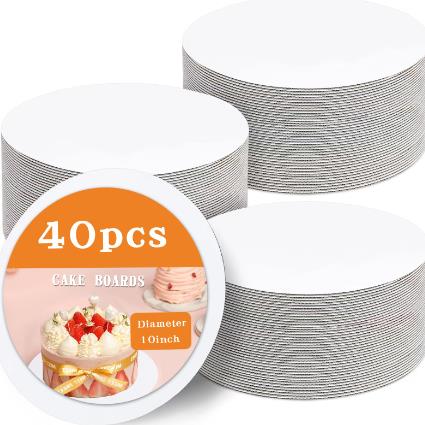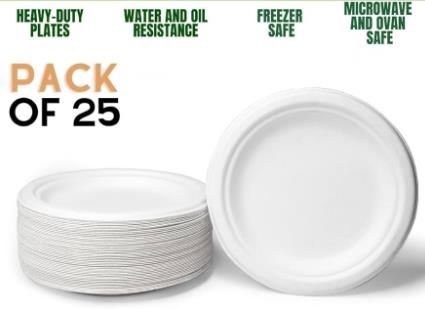
Content Menu
● The Paper Plate Dilemma
● Recycling Paper Plates: Possibilities and Limitations
>> Can Paper Plates Be Recycled?
>> The Recycling Process for Clean Paper Plates
● Composting: A Natural Alternative
>> Benefits of Composting Paper Plates
>> How to Compost Paper Plates
● Proper Disposal Methods for Paper Plates
● Environmental Impact of Paper Plate Disposal
● Alternatives to Disposable Paper Plates
● The Future of Disposable Dinnerware
● Conclusion
● FAQ
>> 1. Are all paper plates recyclable?
>> 2. How long does it take for a paper plate to decompose in a landfill?
>> 3. Can I compost paper plates with food residue?
>> 4. What are some eco-friendly alternatives to paper plates?
>> 5. How can I reduce my use of disposable plates?
● Citations:
In our modern, fast-paced world, convenience often takes precedence over environmental concerns. Paper plates are a prime example of this trade-off, offering ease of use but raising questions about responsible disposal. This article delves into the various methods of disposing of paper plates, exploring recycling, composting, and alternative options to minimize their environmental impact.

The Paper Plate Dilemma
Paper plates have become a staple in many households and events due to their convenience. However, their widespread use has led to significant environmental concerns. Understanding how to properly dispose of these items is crucial for reducing waste and protecting our planet.
Recycling Paper Plates: Possibilities and Limitations
Recycling is often the first option that comes to mind when considering how to dispose of paper products. However, recycling paper plates is not as straightforward as it might seem.
Can Paper Plates Be Recycled?
The answer to this question is not a simple yes or no. While paper plates are made from paper, which is generally recyclable, several factors complicate their recycling process:
1. Food Contamination: Used paper plates with any amount of food waste cannot be recycled[5]. The food residue, especially oil, contaminates the paper fibers, making them impossible to recover in the recycling process.
2. Coatings: Many paper plates have plastic or wax coatings to make them more resistant to liquids. These coatings can make recycling difficult or impossible[5].
3. Local Recycling Policies: Recycling capabilities vary by location. Some recycling facilities may accept clean paper plates, while others may not have the capacity to process them at all[1].
The Recycling Process for Clean Paper Plates
In cases where clean paper plates can be recycled, the process typically involves the following steps:
1. Collection: Clean paper plates are collected and transported to recycling facilities[5].
2. Sorting: At the facility, plates are sorted. Contaminated items are removed[2].
3. Pulping: The plates are turned into pulp by adding water and grinding[2].
4. Screening: Unwanted objects are removed from the pulp[2].
5. De-inking: Inks and binders are removed from the paperboard[2].
6. Bleaching: The paper is treated with chemicals to ensure it appears white[2].
7. Drying and Cutting: The pulp is rolled, dried, and cut into various sizes[2].
It's important to note that paper products can typically only be recycled about five to seven times before the fibers become too short to form new bonds[5].

Composting: A Natural Alternative
For paper plates that can't be recycled, composting offers an eco-friendly disposal method.
Benefits of Composting Paper Plates
Composting paper plates can provide several advantages:
1. Reduced Landfill Waste: Composting diverts waste from landfills, where paper plates can take up to 5 years to decompose[2].
2. Soil Enrichment: Composted paper plates can add nutrients to soil, benefiting gardens and plants[1].
3. Faster Decomposition: In a proper composting environment, paper plates can break down in as little as 45 to 60 days[2].
How to Compost Paper Plates
To compost paper plates effectively:
1. Check Composition: Ensure the plates are made from 100% biodegradable materials[1].
2. Remove Food Residue: Scrape off any leftover food before composting[4].
3. Tear or Shred: Break the plates into smaller pieces to speed up decomposition.
4. Mix with Other Compost Materials: Combine with a mix of "green" (nitrogen-rich) and "brown" (carbon-rich) materials for optimal composting.
5. Maintain Proper Conditions: Keep the compost pile moist and aerated for efficient decomposition.
Proper Disposal Methods for Paper Plates
When recycling or composting isn't possible, it's essential to dispose of paper plates responsibly. Here's a step-by-step guide:
1. Separate Plastic and Paper Plates: If you have both types, keep them separate for proper disposal[4].
2. Clean the Plates: Remove any food residue from the plates[4].
3. Check Local Guidelines: Consult your local waste management guidelines for specific instructions on disposing of paper plates[1].
4. Use the Correct Bin: Place clean, uncoated paper plates in the recycling bin if accepted locally. Otherwise, they should go in the general waste bin[1].
5. Consider Alternatives: For future use, consider more sustainable options like reusable plates or compostable alternatives[1].
Environmental Impact of Paper Plate Disposal
The way we dispose of paper plates can have significant environmental implications:
1. Landfill Contribution: Improperly disposed paper plates contribute to landfill waste, taking up space and releasing methane as they decompose.
2. Resource Depletion: The production and disposal of single-use paper plates contribute to deforestation and resource consumption.
3. Water Pollution: When paper plates end up in waterways, they can break down into microfibers, potentially harming aquatic life.
4. Carbon Footprint: The production, transportation, and disposal of paper plates all contribute to greenhouse gas emissions.
Alternatives to Disposable Paper Plates
To reduce the environmental impact of paper plate usage, consider these alternatives:
1. Reusable Plates: Invest in durable, washable plates for regular use and events.
2. Biodegradable Options: Choose plates made from materials like bamboo or palm leaves, which are fully biodegradable.
3. Edible Plates: Some innovative companies are creating edible plates made from grains or other food materials.
4. Rentals: For large events, consider renting reusable dishware instead of using disposables.
The Future of Disposable Dinnerware
As environmental concerns grow, the future of disposable dinnerware is likely to evolve:
1. Innovative Materials: Research into new, more sustainable materials for disposable plates is ongoing.
2. Improved Recycling Technologies: Advancements in recycling technologies may make it easier to recycle coated or contaminated paper plates in the future.
3. Stricter Regulations: We may see increased regulations on the production and disposal of single-use items, including paper plates.
4. Shift in Consumer Behavior: Growing environmental awareness may lead to a decrease in demand for disposable plates in favor of more sustainable options.
Conclusion
Proper disposal of paper plates is a crucial step in minimizing their environmental impact. While recycling clean, uncoated paper plates is possible in some areas, composting offers a more widely applicable solution for biodegradable plates. As consumers, we play a vital role in reducing waste by choosing sustainable alternatives and disposing of paper plates responsibly when their use is unavoidable.
By understanding the complexities of paper plate disposal and making informed choices, we can contribute to a more sustainable future. Whether through careful recycling, composting, or opting for reusable alternatives, each small action adds up to significant environmental benefits over time.

FAQ
1. Are all paper plates recyclable?
No, not all paper plates are recyclable. Clean, uncoated paper plates may be recyclable in some areas, but plates with food residue or plastic coatings typically cannot be recycled[5].
2. How long does it take for a paper plate to decompose in a landfill?
According to some sources, paper plates can take up to 5 years to decompose in a landfill[2].
3. Can I compost paper plates with food residue?
While it's best to remove as much food residue as possible, small amounts of food on paper plates can generally be composted along with the plate, as long as the plate itself is made from biodegradable materials[1].
4. What are some eco-friendly alternatives to paper plates?
Eco-friendly alternatives to paper plates include reusable plates, biodegradable plates made from materials like bamboo or palm leaves, and even edible plates made from grains or other food materials[4].
5. How can I reduce my use of disposable plates?
You can reduce your use of disposable plates by investing in durable, reusable plates for regular use, opting for biodegradable alternatives when disposables are necessary, and considering plate rentals for large events[4].
Citations:
[1] https://circular.eco/article/how-to-responsibly-dispose-of-paper-plates
[2] https://www.jcfoodpack.com/news-how-are-paper-plates-recycled-what-to-do-afterwards.html
[3] https://web.xidian.edu.cn/ysxu/files/6253ce1964ebd.pdf
[4] https://techbullion.com/a-step-by-step-guide-on-how-to-dispose-of-disposable-plates-the-right-way/
[5] https://www.sustainablejungle.com/paper-plates-recyclable/
[6] https://manu60.magtech.com.cn/journalx_biotech/basicinfo/viewHtmlFile.action?id=23
[7] https://www.rts.com/blog/the-complete-paper-card-recycling-process/

















